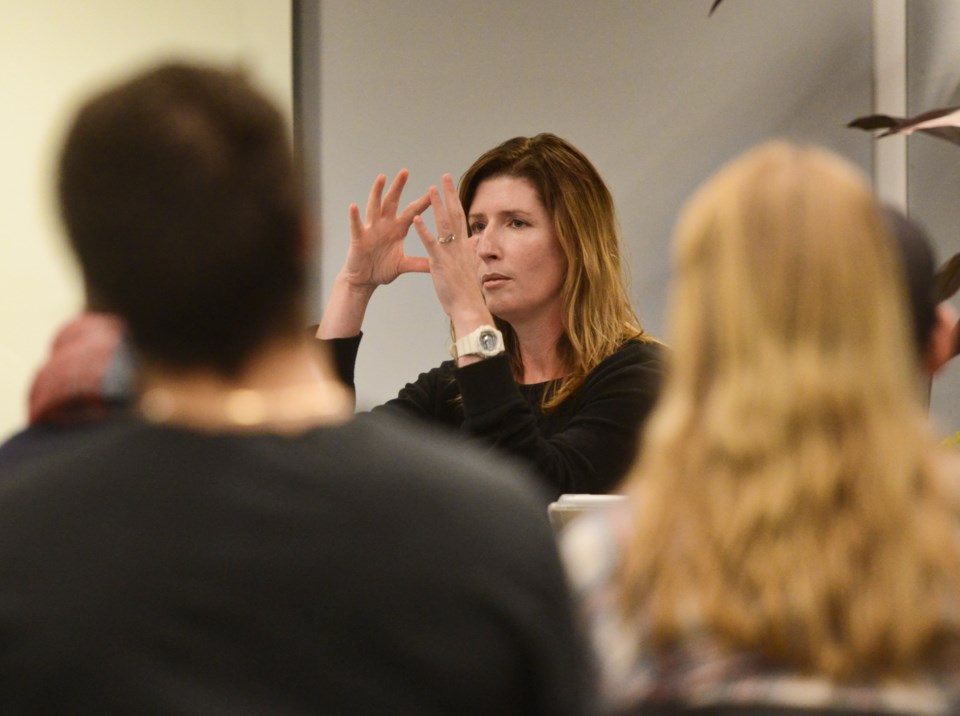Justin Trudeau is the problem with the Liberal campaign right now, not the answer, a University of Guelph panel discussion said Wednesday.
That was one of the opinions expressed at a federal election panel at the University of Guelph.
“He’s the liability for the Liberals,” professor Matthew Hayday told a room full of students.
He said the economy is doing well and the free trade negotiations with the US also went well despite having to deal with Donald Trump.
“The economy is doing well, we’re managing to survive with that insane Cheeto person to the south, and yet he’s in trouble,” Hayday said.
“This should be a slam dunk re-election for this government, but it’s not.”
The 90-minute panel discussion and question period was hosted by U of G political science professor Ian Spears and featured Tamara Small, associate professor of political science at the U of G, Hayday, professor of history at the U of G, and Anna Esselment, associate professor of political science at the University of Waterloo.
“Trudeau is no longer The Contrast. He’s fighting a very different campaign” than the last election, said Esselment. “He can’t pull away from the other leaders and differentiate the same way that he did the last time.”
Small said a majority government gives the impression Trudeau had a huge advantage in the last election, when the fact is that the difference in popularity with the Conservatives was not that big, it was a matter of the country’s first past the post electoral system.
“It’s hard to capture ‘enthusiasm,’” Esselment said, pointing out that Trudeau captured the young, enthusiastic Millenial vote in the last election.
If that enthusiasm has switched to the NDP, “then the Liberals are going to be in more trouble than they are now,” Esselment said.
It could come down to who is “kingmaker” in a minority government, the panel agreed, being either the NDP, Greens or Bloc Quebecois.
Moderator Spears said people are discovering that Jasmeet Singh is a “likeable leader” who has done well in the debates.
“I think that the NDP is a little late to this party … that they’ll not get as many seats as they did last time,” Small said.
She added that he is “new, different, smart and appealing,” but he is a relative unknown on the national political scene and nobody talked about him leading up to the campaign.
“They (the NDP) could be a kingmaker of sorts, and that’s not a horrible position to be in,” Small said, referring to the NDP role in a possible minority government.
Hayday said the NDP is so far behind in Quebec, where in 2011 they did very well, that it will definitely hurt them.
Hayday also wondered if polls might be misleading because people aren’t likely to admit they wouldn’t vote for Singh because he is Sikh.
“I think we are going to see some quiet racism from the Canadian voter that don’t want to vote for a Sikh leader,” Hayday said.
Among the topics discussed was the national leaders’ debate, with Esselment saying the biggest takeaway from the debate should be how many people watched it.
“On average, per minute, there were about 4 million Canadians who were watching,” she said, adding that 10 million watched some portion of it.
The panel universally agreed that PPC leader Maxime Bernier did not fare well in the debate.



